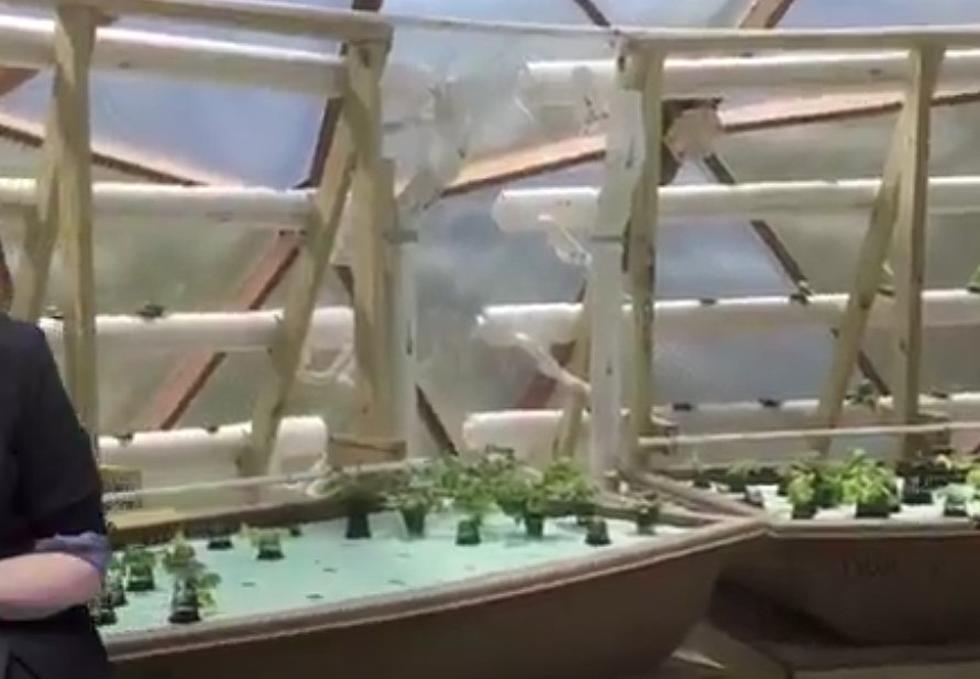
Penns Grove-Carney’s Point Aquaponics Project Tackles Food Insecurity in NJ
Photo Credit: Penns Grove-Carney's Point Regional School District
The Penns Grove-Carney's Point Regional School district has received a $10,000 grant from the New Jersey Education Association and Sustainable New Jersey to obtain an outdoor aquaponics lab to help tackle food insecurity in urban communities.
Aquaponics is a system of aquaculture where farm-raised fish supplies nutrients for plants grown hydroponically, which in turn purify the water.
Aquaponics is a powerful remedy to three terrible injustices that's done to humanity, land and sea, said Vicki Palaganas, environmental science teacher at Penns Grove High School. Not only does it tackle the food desert epidemic but it also mitigates the problems associated with agricultural and aquacultural industries.
The difference between aquaponics and conventional farming practices is that aquaponics does not breed pests, with an increase need of pesticides. It does not destroy habitats of beneficial insects like the monarch butterfly, which is decreasing in number. It also does not create runoff, which can lead to waterways filling with nitrogen, which can kill marine life.

Palaganas said because fish will be farm-raised, it will give marine life time to recover from overfishing especially through the practice of bottom crawling.
Food insecurity is the main focus for aquaponics, she said. Palaganas said people are out of jobs and therefore, there's increasing levels of hunger. Food deserts arise because this creates the perfect storm in urban areas where people don't have access to healthy, nutritious foods.
Schools are a great place to bring nature back into learning. This grant will offer students an outdoor learning experience in the courtyards.
"This is important because nature in learning bespeaks a deep desire to restore to our students something that we know is missing in their lives," said Palaganas.
With this student-led project, students will be educated on fish, plant, nutrient and water quality management, building, engineering and construction.
"What the students will be doing is daily upkeep. It will first involve them feeding the fish," said Palaganas. This is important because the fish pellets contain a complete diet with all the required nutrients for fish growth. She said she's interested in getting tilapia because they can be raised very quickly.
Waste material that is excreted from a fish's gills come out in the form of ammonia which can be toxic for the fish. So then students must oversee the filtration system.
Students will need a basic knowledge of chemistry because they need to regulate the levels of macro and miconutrients like nitrogen, potassium, calcium, iron and zinc. If they are absent, the plants will not complete major stages in their life.
Nickolas Gartner, a sophomore at Penns Grove High School, said he's excited to get started because he loves the fish and the garden. When he was growing up, his family always had a garden filled with cucumbers, tomatoes, lettuce and watermelon.
"I love eating fresh out of the garden and I think it would be fun to take care of the fish. I personally like taking care of the animals," said Gartner.
"I'm interested in fighting the hunger in America with the project, starting with the urban communities considered food deserts," said Gartner.
While the entire student body can be involved with this project once it gets off the ground, right now only the students and faculty in the science department are involved.
LOOK: 30 fascinating facts about sleep in the animal kingdom
More From WPG Talk Radio 95.5 FM










